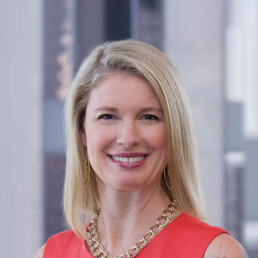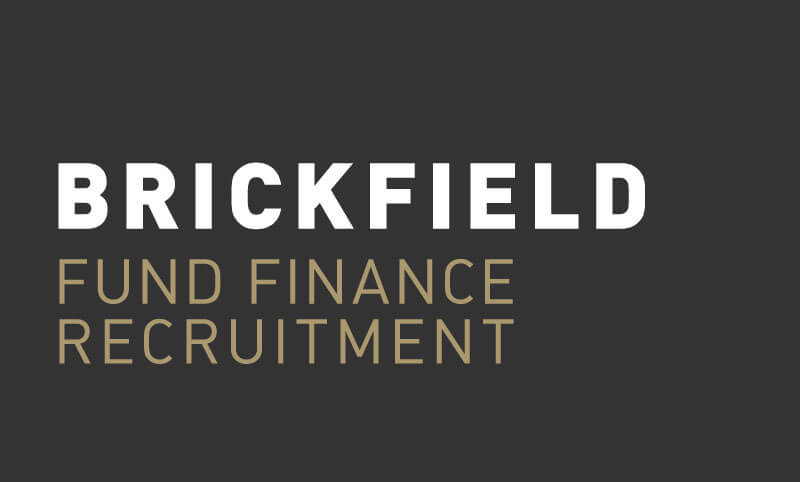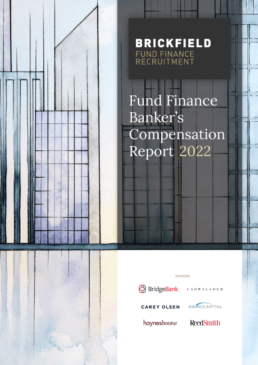
Careers in Fund Finance: Interview with Julie Thick of J.P. Morgan
In this edition of Fund Finance Voices, Brickfield’s series of personal interviews with senior figures in the industry, we speak to Julie Thick, who is Managing Director and Director of National Subscription Lending Platform at J.P. Morgan in Chicago.
Can you tell us why you took up the banking profession, and how and why you brought your real estate experience to subscription finance?
When I graduated college with a marketing degree, I really had no idea what my career path would be – even now I still wonder some days! I always loved that banking was so vast and had 300-plus different career paths all rolled up in one institution. I knew that in banking I would have the opportunity to analyze many different companies and industries, which would certainly lead me to find one that piqued my interest. It was there that I found my passion for real estate. I enjoy the tangible aspect to financing real estate, and I can see the physical result through the buildings that I finance. I love that I can drive around a city and point out properties that I have been involved with and see that impact on a community skyline. I can see the measurable value add that I provide to my clients. I’ve spent the bulk of my career working in Chicago, which is a fantastic real estate town.
As the real estate industry evolved, it was fascinating to me how certain clients’ platforms would experience exponential growth when they adopted a fund structure where they could implement their strategies on a broader scale. When I was on the asset financing side accessing the J.P. Morgan subscription line product for my clients, I noticed we were running our real estate subscription finance business as more of an afterthought than a structured business line. I saw potential in developing and operationalizing this product platform. I put together a business plan, presented it to senior management, and got the green light to execute on it. It has been one of the most rewarding experiences of my career to build out this business within the walls of J.P. Morgan. It has allowed me to exercise entrepreneurial muscles within a strong well-established company with a culture that strives for excellence in all that we do – all while helping our clients in a new way.
What aspects of the subscription business for the real estate industry are specific to these types of products and clients?
Real estate funds were some of the earliest adopters of subscription finance as they realized the competitive advantage at the negotiating table. You don’t need to worry about having your asset level financing in place at closing, you can instead use the sub line for 100% of the acquisition proceeds. More importantly, real estate fund sponsors have not abused their use of the sub lines to overly prolong their capital calls, which has led to acceptance by the investor community.
Many of the products and even concepts that are now commonplace in fund finance were either non-existent or in their infancy when you first began working in the industry. What areas have you seen the most dramatic change, and which innovations today do you see as having the most impact in the future?
As the industry evolved over the last 25 years, the way capital is raised has changed dramatically. We moved from a model of raising capital deal by deal, to discovering the efficiency of raising bulk capital for a holistic strategy. This has been a game changer for those who embraced it. It has created economies of scale and speed of execution.
Throughout the pandemic, it has been fascinating to see a further evolution in the capital raising process. Fund sponsors are no longer hopping on a plane for a lengthy fundraising roadshow around the world. What previously took months, traveling to 20 investor meetings, now can be accomplished in 20 virtual calls over two days. The efficiency has created a significantly condensed timeline for the capital raise. I would imagine that this “death of the roadshow” will be one of those elements that sticks in a post-COVID world. While funds previously structured their lifecycle to include two years for fundraising, I think you will see that shift downward going forward. We are seeing six to nine months between first and final investor close for many of our clients. In turn, we’re seeing shorter timelines for putting the sub line in place as well. The resulting real estate subscription finance activity has been tremendously robust in 2021.
How has J.P. Morgan’s fund finance operation grown and developed in your time there? Which people do you think have been most influential in that development, and in your own career?
We are having our best year ever, and we’ve had some great years! We are thrilled by the fundraising success of our clients and our ability to assist them with flexible solutions. In being there for our clients, the ancillary benefit is the exponential growth in our market share supporting our ability to scale for our clients.
I am so grateful for the support from my previous manager, Chad Tredway. He has such a positive and inspiring outlook that motivated me to strive for the equivalent in my career and life. One of his mantras is: “Get one percent better every day. Think about one thing you can do better each day and soon you’ll feel the impact in a big way.”
Another piece of advice from Chad was to write your year-end resume or performance review at the beginning of the year. Set the goals as to what you hope to achieve professionally in clear and distinct language. Use that as your strategic plan that guides all that you do during the year. You should have key short-and long-term goals and you should be prioritizing your calendar every week with a focus on achieving them. It is important to dedicate the time to thinking and planning every week. Otherwise, you get to Friday and see that the only thing you have accomplished is answering all your emails. That is certainly necessary, but it doesn’t propel you forward or help you grow.
Large corporate cultures sometimes can have the effect of stifling innovative thinking. At J.P. Morgan, we are driven to be the opposite of that. We are encouraged to break out of that mold to see the changes that need to be made and make them. It was that type of thinking that drove me to rebuild our sub line delivery model for our clients. Al Brooks, Head of JPMorgan Chase’s Commercial Real Estate business, has created a culture that focuses on delighting our clients at every turn.
Which attributes and what kind of experience are you typically looking for when bringing in new team members? How do you approach training, mentoring and career development?
I believe that it is critically important to take proactive control of your own career development. We tend to think if we do our jobs well, we will get recognized for that next role. That really doesn’t happen. Sometimes you need to do some “blue sky” thinking about your skills and how they can be used in different ways.
During my own career brainstorming sessions, I knew that there were certain elements that I found most enriching in the prior jobs that I had held. I liked to feel that I was adding value to a team. I always wanted to learn new skills. I knew that I was good at being in front of clients. So, I challenged myself to find a path to meld together my preferences and strengths and support my colleagues to nurture their own client relationships through the subscription lending platform.
As I progressed in my career, I focused my talent selection more on the soft skills – the EQ versus the IQ. Much of what we do on a day-to-day basis can be taught. I look for talented individuals with excellent communication skills who are eager to learn and willing to do a little bit of everything to help the team.
With all our junior talent, my first and biggest piece of advice is to build your network, both internally and externally. I have a phenomenal network of industry professionals that helps make me smarter every day. Given the value that I place on that, I never refuse a request to grab coffee or have a chat. You must pay it forward with the knowledge that you have collected in your career, no matter what stage you are at. Many times, as businesswomen, we try to downplay the “mom” aspect of being a working mom. I believe that it is one of my strongest attributes that I bring to work with me every day. The mom in me believes fiercely in mentorship, nurturing and encouraging people to excel and succeed. The best managers that I have had in my career believe that their success is based on the success of their employees. I try to emulate that every day.
Brickfield Recruitment works with leading financial institutions in sourcing the very best fund finance talent. If you are interested in finding out more contact Rory Smith at Brickfield Recruitment on +44 7800 963 594 or at rory@brickfieldrecruitment.com.




